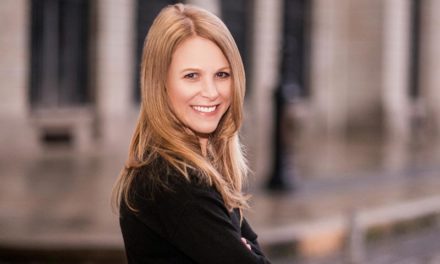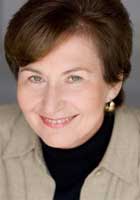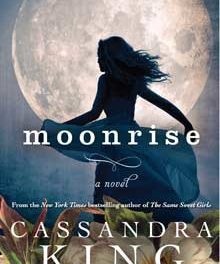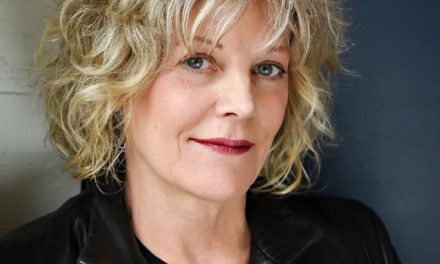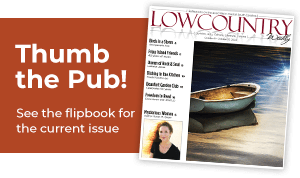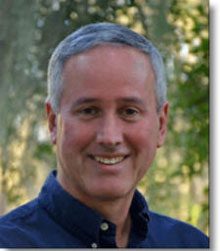 Writer/publisher Tim Johnston discusses his new collection, his process, the human condition, and what’s so great about the short story.
Writer/publisher Tim Johnston discusses his new collection, his process, the human condition, and what’s so great about the short story.
By Margaret Evans, Editor
I first read Tim Johnston’s collection Friday Afternoon and Other Stories about two years ago, when it was still just a manuscript. It had a different title, a different story order, and an uncertain future. I zoomed through those pages with delight, so when Tim asked me for a blurb, I was happy to oblige.
At the time, I wrote: “Storyteller T.D. Johnston is a closer. He knows the secret that some writers never learn – that a great story demands a great ending. Some of his endings are deliciously open – almost like new beginnings – while others are as shocking and final as a door slammed in your face. In story after tantalizing story, Johnston sends his variously-flawed characters wobbling down the brutal balance beam of human existence – building tension as they go – then sticks his landing like an Olympic gymnast. Only then do we realize we’ve been holding our breath… and sometimes holding back tears.”
I am pleased to announce that this blurb – along with praise from several serious writers, including Pat Conroy – now appears on the back of a beautiful jacket, designed by local artist Tim Devine, wrapped around a sturdy volume you can hold in your hand.
Tim’s book is finally here.
I spoke with Tim Johnston recently about his life as a reader, writer, teacher and publisher of short stories.
Margaret Evans: You’ve devoted your professional career to this literary form. Why short stories?
TD Johnston: Short stories turned me into a lifelong reader when I was a kid, just as I became a lifelong lover of music from listening to FM radio, and developed my affection for movies in the same era of my life. What do short stories, songs, and films have in common? Aside from the obviously-important job of entertainment, each form of art is experienced fully in one sitting, start to finish, in one focused and open mood, and can be repeated, relished, considered, examined for what it might have to do with us, still all in the same sitting. The good story has what Edgar Allan Poe called a “singular effect” on the reader – one that lasts and, in the case of the great story, influences us forever.
Every reader can be reached by the good short story, which is why as a teacher I  employed short fiction as a major part of my curriculum. The kid who “self-identifies” as a math person or science person or non-reader might reject the classic novel at the outset, but will always give the classic short story a chance, and never regrets doing so. Such a reader can move on to classic novels once he or she has become a lover of fiction who appreciates that the tension, conflict and resolutions experienced by human souls in stories are also experienced by real people like themselves or those around them. In my view, the short story is the purest form of literature, and I say that with great affection for novels (I have just finished revising my first novel) and poetry.I am an avid reader of all three forms, and also love reading the great stage plays, but the short story has been with me since Dr. Seuss, my favorite short-story writer when I was a small child. Yes… books for our newest readers are short stories, which should be part of every grownup’s reading life.
employed short fiction as a major part of my curriculum. The kid who “self-identifies” as a math person or science person or non-reader might reject the classic novel at the outset, but will always give the classic short story a chance, and never regrets doing so. Such a reader can move on to classic novels once he or she has become a lover of fiction who appreciates that the tension, conflict and resolutions experienced by human souls in stories are also experienced by real people like themselves or those around them. In my view, the short story is the purest form of literature, and I say that with great affection for novels (I have just finished revising my first novel) and poetry.I am an avid reader of all three forms, and also love reading the great stage plays, but the short story has been with me since Dr. Seuss, my favorite short-story writer when I was a small child. Yes… books for our newest readers are short stories, which should be part of every grownup’s reading life.
ME: Many of your characters seem caught at a crossroads between two opposing choices: Maintain their ideals… or sell out. Hold onto their dreams… or submit to society’s expectations. Several stories are peopled with disillusioned educators and “successful” (but miserable) corporate drones. Since you’re a former educator – who’s also worked in the corporate world – I’m wondering if these stories are rooted in personal experience?
TDJ: One thing I love about the word “choice” is that the longer we live, the more we understand the difference in types of choice: Choice can mean “dilemma” or “opportunity” or “Catch-22” or “leap of faith” or “pick your poison.” How about “I can’t decide whether to pursue my passion or please my parents”? Or “I don’t know whether to support my child by encouraging her dreams or teaching her to be practical”? Even “I want to be able to afford a better brand of peanut butter” can involve a significant life choice that transcends food preferences. To be human is to face choices that affect our lives and often the lives of others. As a person who spent his “formative” adult years in the corporate world, followed by twenty years as an English teacher, high school basketball coach and heading schools, I have seen almost every kind of human behavior and been fascinated and inspired, disgusted and mortified, delighted and gratified, and agitated and resentful. Always, it is important for me to examine myself and ask myself the important questions, largely having to do with to what degree I am a hypocrite – to be human is to be a hypocrite; it’s all a matter of degree – as well as make the earnest effort to understand my own potential to be good or bad, brave or cowardly, compassionate or uncaring. Good stories both entertain and cause us to examine ourselves and/or our society, and whether we are who we hope we are.
ME: Discuss your process. How does a short story happen?
TD: I start with a situation. I do not outline, because I don’t want to tell myself what happens until it happens. I create a situation in my mind, and begin to get to know the character who is either in or approaching that situation, one that will involve some level of tension and potential for conflict that’s interesting to me first as a reader and person. Once I begin to know the character, or characters, with whom the protagonist will interact, I choose a narrative point of view. If third-person anonymous narration is called for as the best choice, I “create” the anonymous narrator. That narrator might have a very different style of storytelling from another anonymous narrator. I then “become” that narrator, and when ready I begin writing the story. That’s why my narrative style is difficult to pin down. I like to experiment with narrative voice, whether in third or first person. I like to move around, which explains the eclectic nature of this collection. I don’t like to write the same story twice, and I don’t like to tell two stories in the same way.
From the narrative POV decision forward, I write to find out what happens. That may sound crazy, but all I know when I start writing are two things: the character’s situation, including place, and how I feel emotionally about that situation. It doesn’t matter whether I like or dislike the protagonist (understanding is more important than affection as an author, and compassion is important too, even though the honest author is appropriately incapable of doing anything to help or hinder the protagonist). It also doesn’t matter what I think the protagonist should do when faced with a choice or confronted with a situation or conflict. However, what ultimately happens tends to reveal itself thematically as commentary, as always I find that, indeed, I had something to say in writing a particular story. When finished drafting a story, I set it aside for a week or so, and then come back to it as a reader. If I like it, I revise primarily for word choice and to eliminate waste. To date I have never changed an ending. Why? Because that’s what I found out happened. If I don’t like a story a lot upon returning to it, I change what my reader’s instinct leads me to change, and come back again as a reader in several days. If then I am happy with the whole story as a reader, I am happy as a writer. If I think it has value beyond entertainment, producing that singular effect which Poe so aptly described, then I have fun giving it a title. Once the story has a name, it is my baby, and I am proud to give my baby an audience.
ME: A couple of your stories are set in the future, and it’s a fairly dystopian vision you present.
TDJ: Writers who present such a vision are almost always concerned about a present condition in society, and the dystopian story set in the future is the author’s only way to use fiction as a warning, a call to action for readers to think about where we are as a society and whether or not the dystopian warning is absurd. In my story “Sixth Period,” Congress has passed a law declaring that Greed is no longer to be included in the Deadly Sins, formally removing the word from the English language, replacing it with Avarice, to be taught as a virtue in schools and churches. Let me ask you: is the idea of an overzealous and overreaching Congress absurd? Not anymore. And is greed a virtue in American culture? Frighteningly, it is. What does a schoolteacher do with such a mandate? I wrote the story to find out, with an understanding of the very real pressure and stress that come with making a living in the 21st Century.
Likewise with “The Closing,” which presents a highly educated man auctioning off his professional services and the rest of his life to the highest corporate bidder in a world in which the cost of living has exceeded the ability of most people to pay to be here. As the only creatures who must pay to be on this planet, this should be a concern for every citizen and every parent. The job of the concerned author is to write about it, if it matters to him or her.
ME: Who are your favorite short writers? Who has influenced your work?
TDJ: They are countless, from those with a famously extensive body of great short fiction (F. Scott Fitzgerald, Ernest Hemingway, Flannery O’Connor, Raymond Carver, Anton Chekhov, Jack London, Edgar Allan Poe, Stephen King) to those who were also prolific but wrote one timelessly-great famous short story (Richard Connell’s “The Most Dangerous Game,” Jack Finney’s “Contents of the Dead Man’s Pockets,” O. Henry’s “The Gift of the Magi,” Irwin Shaw’s “The Eighty-Yard Run,” and Shirley Jackson’s “The Lottery” come satisfyingly to mind.) And I am an eternal fan of Rod Serling, who along with Richard Matheson, Charles Beaumont, Earl Hamner and George Clayton Johnson brought non-episodic and important short stories to the screen with The Twilight Zone. What all these writers have in common is a deep and honest understanding of the human condition and the dedicated willingness to comment on it through creating stories and the human souls who inhabit them.
ME: Give us an update on your publishing company, Short Story America.
TDJ: Short Story America just celebrated its sixth birthday this past January. We now have eight books in print (four volumes of the anthology series, combining for 171 stories by top authors around the U.S. and world), and four books by individual authors. Folks can order any of these great books by going to www.shortstoryamerica.com. Thanks in advance to readers who support underdog independent presses. We sure don’t do it for the money. Quality stories deserve a home. I’m happy to provide a roof over some good stories’ heads.
The public is invited to a Book Launch Party for Tim Johnston’s Friday Afternoon and Other Stories on Friday, May 20th from 4 – 7 pm at the Lewis Reeves Sams House, 601 Bay Street, Beaufort. For more information visit www.tdjohnston.com

